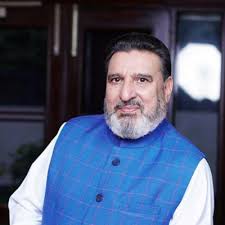NEW DELHI: Former members of Jamaat-e-Islami and jailed hardliners are making unexpected political moves, signalling a strategic shift aimed at seeking a potential revocation of the group’s ban.
Ahead of the highly anticipated Assembly elections in the union territory of Jammu and Kashmir, the five-year-old UT is witnessing a peculiar political environment with former members of the banned outfit Jamaat-e-Islami (JeI) along with jailed hardliners, entering the political arena. The sudden change of heart from JI, which used to earlier brand participating in elections as ‘haram’, has come as a surprise and is being viewed as a major initiative by the banned outfit to ‘please’ the government, in order to get the ban revoked and enter the mainstream.
Top sources in JI said on the condition of anonymity, “Things have changed drastically in the valley post the abrogation of Article 370 and it is the only way that the BJP can make Jammu and Kashmir a prosperous region.”
Four candidates backed by JI have been cleared by the Election Commission and will now be contesting in the first phase of elections on September 18: Dr Talat Majeed (Pulwama), Sayar Ahmad (Kulgam), Nazir Ahmad Bhat (Devsar) and Umar Hameed (Zainapora).
“All these four are contesting independently, but will be backed by the Jamaat. For the coming two phases on September 25 and October 1, a near about 8-10 candidates would be finalised by JI and would be backed by them”, said Kalimullah Lone, son of Ghulam Qadir Lone, one of the top leaders amongst the JI.
The organisation has been facing the wrath of the central agencies for the past several years and was banned in 2019, following the deadly Pulwama attack that claimed the lives of over 40 Central Reserve Police Force personnel. It was yet again banned by the home ministry in February 2024 but despite this, its grassroots network remainded robust.
Sources confirmed that Jamaat has been talking to authorities in New Delhi over the past three years, and there have been half a dozen meetings between them. A five-member panel from JI has been engaging with a similar styled delegation of New Delhi since 2021 and they have met five times since then, indicating that JI is eager to get into the mainstream and has even accepted the post-370 abrogation situation.
JI hasn’t participated in elections since the controversial 1987 Assembly polls, which were widely criticised for alleged rigging and are still considered as the root cause of militancy in Jammu and Kashmir. However, in the recent Lok Sabha elections held in May, several top JI leaders cast their ballots for the first time since 1987.
JI argues that despite their change of heart and pro-India stance, the organisation still remains banned and it is being viewed as a ‘deceit’ from New Delhi.
“We have met five times since 2021 and our last meeting was held on August 19 in Kashmir. We were being assured that our ban would be revoked, but that did not happen, and it is very unfortunate for us. If the ban could’ve been revoked, we would have contested on more seats and with more vigour”, said sources.
Top leaders within the banned outfit claim that they are not the rivals of BJP and rather, they would love to see the saffron party winning in Kashmir.
“We would love to see BJP ruling Jammu & Kashmir. We have seen a lot of bloodshed and violence and we are tired of it. We don’t want any turbulence anymore, for that to happen, it is important that BJP should win with the coalition of JI, independents and Engineer Rashid”, they said.
There were also some apprehensions that Mirwaiz Umar Farooq, the chief cleric of the UT who has chosen to remain silent since 2019 was eager to contest elections. There were rumours that there was some sort of an engagement between him and JI.
“Mirwaiz Sahib wanted to contest elections and there were some talks with JI but as our ban remains intact, all that was abandoned”, sources claim. But the chief cleric refuted all such claims and said that “he never had a word with Jamaat.”
Similarly, former RAW chief A.S. Dulat, who has always had a curious take on Kashmir and had been extensively involved during his tenure said, “Syed Ali Shah Geelani, who was the main voice of Pakistan in the valley contested elections five times and lost on three occasions. So why the fuss when Jamaat is entering the mainstream?”
He further claims that if all goes well between the National Conference-Congress alliance, then there is likelihood of them winning the elections and Omar Abdullah becoming the chief minister. But if the alliance falls or if they fails to achieve majority, then BJP would win, he said.
Now, with former members of JI filing their nominations for the first phase of the election, there are expectations that the banned outfit would independently support a dozen of its candidates and is eagerly waiting for the right opportunity to get into the mainstream.
But would this development bring peace in the bordering state of Jammu Kashmir at a time when it is witnessing an Assembly election after a decade, and when militants have become active in the Jammu region, time will only decide.

